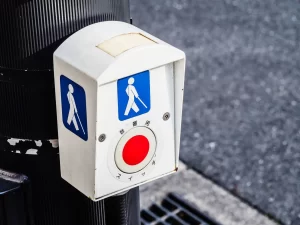Have you ever wondered, “How many words should I write on my website’s pages?” Well, you’re not alone! Many people ask this question when they’re trying to make their website better for visitors and search engines (like Google). Let’s explore this topic step by step.
1. The Golden Rule: Quality Over Quantity:
Imagine you have two ice cream cones. One has a small scoop of your favorite flavor, and the other has three scoops of a flavor you don’t like. Which one would you choose? Most likely, the one with your favorite flavor, even if it’s smaller. Similarly, it’s better to have a smaller amount of really good content than a lot of content that isn’t helpful or interesting.
2. A Basic Rule: 300-500 Words
In the vast landscape of the internet, content length can be a bit of a puzzle. However, a general guideline that many website experts swear by is the 300-500 word range for most pages. Why this specific range? Well, it’s long enough to provide valuable information and context, ensuring readers (and search engines) understand the page’s topic. Yet, it’s concise enough to retain the reader’s attention, much like a short story that’s engaging from start to finish. This length typically strikes a balance, ensuring the content is substantial but not overwhelming.
3. The Magic of Long Stories
While the 300-500 word range works for many pages, there are times when a topic demands a deeper dive. Complex subjects, comprehensive guides, or pieces aiming to be authoritative resources in their field often require more extensive coverage. In these scenarios, writing longer pieces, ranging from 1,000 to 2,500 words, becomes essential. Think of it as immersing yourself in a gripping novel. Every word pulls you deeper into the narrative, offering a richer understanding and a more profound connection to the subject. Such long-form content not only captivates readers but also signals to search engines the depth and quality of information, potentially boosting SEO rankings.
4. Different Pages, Different Stories
Just like every book has different chapters, every website has different pages, and each one tells a different story:
- Blog Posts: These are like diary entries or articles. They can be long and detailed.
- Product Pages: These are like advertisements in a magazine. They’re usually shorter and focus on what’s being sold.
- Landing Pages: These are special pages made for specific reasons, like signing up for a newsletter. Their length can vary.
- Static Pages (e.g., About Us, Contact): These are like the introduction or the back cover of a book. They give basic information about the website or the person/business behind it. They should be clear, engaging, and not too long.
5. Making Reading Fun
Imagine reading a book with no pictures, chapters, or breaks. Boring, right? On your website, use images, videos, and headings to make the content fun and easy to read.
6. Avoiding Empty Pages
Having a page with very little information is like having a book with blank pages. It’s not helpful and can be confusing. Make sure every page on your site has a purpose and offers valuable information.
7. Keeping Content Fresh
Just like you might update your diary or journal with new entries, it’s good to update your website content from time to time. This keeps things fresh and interesting.
8. More Than Just Words
Having the right number of words is important, but there’s more to a good website. Think of it like a puzzle. Other pieces include using the right keywords (words people might type into Google to find your site), making sure your site looks good on phones, and ensuring pages load quickly.
9. Keywords: Like Magic Words
Imagine if you had a magic word that, when said, would make your story more interesting to listeners. In the world of websites, these are called “keywords.” They are specific words or phrases that people type into search engines. By including these words naturally in your content, you make it easier for people to find your website when they search for those terms.
10. Links: Building Bridges
Think of links as bridges between different islands (or web pages). When you link to other pages on your website or to other websites, you’re helping your visitors find more useful information. This also helps search engines understand which pages are important and how they are related.
11. Feedback: Listening to Your Visitors
Just like how you might ask your friends what they thought of your story, it’s essential to listen to your website visitors. Tools like Google Analytics can tell you which pages people visit the most, how long they stay, and what they click on. This feedback can help you understand what’s working and what needs improvement.
12. Mobile-Friendly: Making It Readable Everywhere
Imagine if your book could change size to fit into any bag perfectly. In the same way, your website should look good and be easy to read, whether someone is looking at it on a big computer screen or a small phone screen. This is called being “mobile-friendly,” and it’s super important because many people use their phones to browse the internet.
13. Images and Videos: Adding Color and Life
Just as illustrations bring a children’s book to life, images and videos can make your website more engaging. However, it’s essential to ensure they’re of high quality and relevant to your
In Conclusion
Creating the perfect website is like crafting a beautiful storybook. Every word, image, and link plays a part in telling your story and helping your readers (or visitors) find what they’re looking for. Keep listening, learning, and updating, and you’ll have a website that both people and search engines love!
At Grindstone Design, we don’t just build websites; we craft digital experiences. We understand the intricate dance of SEO, user experience, and design, ensuring that your online presence isn’t just functional but also impactful. If you’re looking to transform your digital narrative into a compelling story that not only ranks but also resonates, then it’s time to turn the page and start a new chapter with us.
Ready to elevate your online presence? Let Grindstone Design be the expert hand behind your website’s success story. Reach out today, and let’s build something exceptional together!



